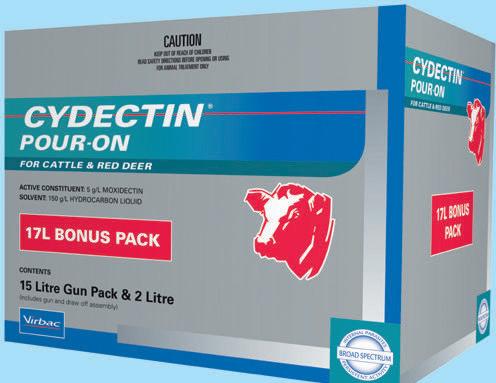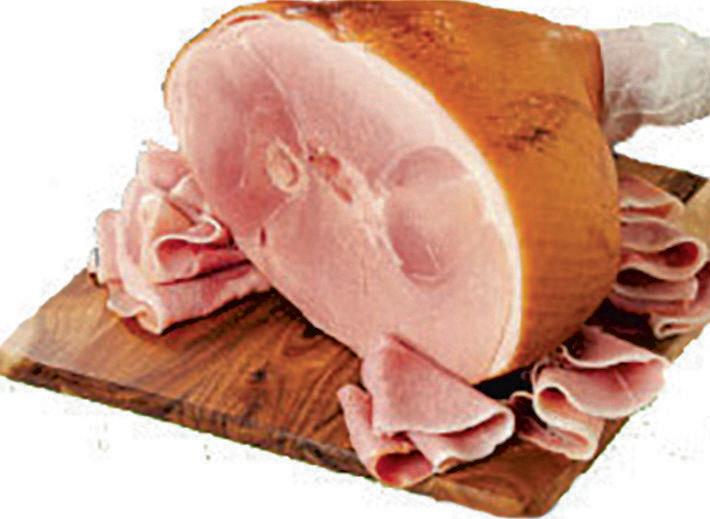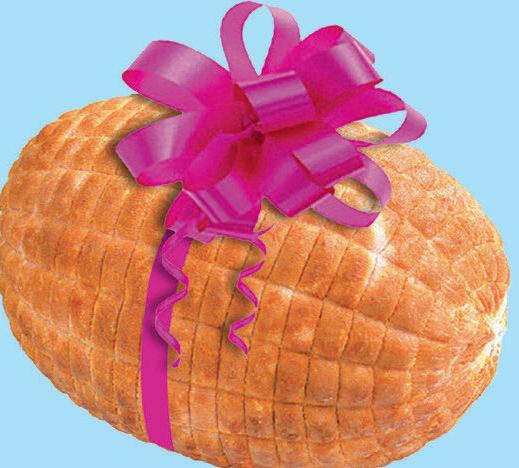
8 minute read
Become visible
www.gippslandtimes.com.au
Time to t alk about vital health
Advertisement
Zoe Askew
MENOPAUSE, we need to chat. Menopause costs women more than $17 billion per year in lost earnings and superannuation, according to the Australian Institute of Superannuation Trustees. Recent studies indicate as many as a quarter of menopausal women experience debilitating symptoms leading to long-term absences from work or forcing them into early retirement. “We know that women have had to resign or reduce their hours because of symptoms,” a spokesperson for the Australian Institute of Superannuation Trustees said. Management and treatment options for menopausal symptoms are available. The national not-for-profit organisation, Jean Hailes for Women’s Health, says “it’s time to talk about it”, and when better than World Menopause Month? Jean Hailes for Women’s Health was founded in 1992 in honour of Dr Dorothy Jean Hailes, a visionary in the field of women’s health who established the first women’s health clinic in Australia dedicated to midlife and menopause. It was one of the first menopause clinics in the world. Dr Hailes was an advocate at a time when advocacy was unheard of in the field of women’s health. Today, Jean Hailes for Women’s Health continues to dedicate itself to improving women’s knowledge and understanding of complex health issues, and has been a leader in the field of menopause and women’s health for 30 years. Chief executive of Jean Hailes for Women’s Health, Janet Michelmore AO, said she was not surprised by the statistics concerning women and menopause. “We know that in Australia, 80 per cent of women experience menopausal symptoms that can range from mild to extremely severe,” Ms Michelmore said. “Many women have had to resign, reduce their hours, or go part time because these symptoms can last up to 10 years.” Ms Michelmore said with October being World Menopause Month, it was time to increase awareness that menopause is a natural part of a woman’s life. “Important conversations and increased education for women and their health practitioners around menopause have to become the norm,” she said. “We need to break taboos around menopause
Jean Hailes for Women’s Health chief executive Janet Michelmore AO.
and find ways to keep women in the workforce.” Management and treatment options for menopause are available. “The Jean Hailes website is a rich source of expert-reviewed and recently updated menopause information, with fact sheets, booklets, podcasts and videos,” Ms Michelmore said. “We need to break taboos around the topic of menopause and encourage women, their partners and families, and workplaces to acknowledge this life stage and talk more openly about it.” When ovaries stop releasing eggs, periods stop; menopause is when you have your final period. Menopause can happen naturally, at the expected age, typically between ages 45 and 55 or earlier. Premature menopause, menopause before the age of 40, affects about one per cent of women and can be because of premature ovarian insufficiency, surgery or cancer treatment. Gynaecologist and advanced laparoscopic surgeon from Jean Hailes for Women’s Health clinics, Dr Pav Nanayakkara, said menopause was different for everyone, and symptoms varied. “Menopausal symptoms are different in everyone but can include a combination of physical symptoms such as irregular periods, hot flushes, night sweats, difficulty sleeping, fatigue, vaginal dryness, loss of libido, bloating, urinary symptoms, weight gain, aches and pains, to emotional symptoms such as irritability, anxiety, forgetfulness, low mood, mood swings,” Dr Nanayakkara said.
Gynaecologist and advanced laparoscopic surgeon from Jean Hailes for Women’s Health clinics, Dr Pav Nanayakkara.
“By definition, menopause occurs when you have not had a period for 12 months. “This can happen naturally (the average age is 51) or occur early because of reasons such as premature ovarian insufficiency, surgery or cancer treatment. “Women often go through a stage called “perimenopause” when symptoms of menopause start occurring. “For some women, these symptoms are mild and can be managed with healthy lifestyle changes. “For other women, depending on their stage of life, relationships and general health, symptoms can be more significant and may require complementary therapies, menopausal hormonal therapy (MHT) and prescription medications,” she said. “It is always worth having a chat with a women’s health doctor to ensure that quality of life is optimised.” For women suffering uncomfortable, painful or even debilitating menopause symptoms, there are home remedies that may help alleviate discomfort. “Herbs and traditional medicines have been used for many years to manage symptoms, but ongoing research is required into effectiveness and safety,” Dr Nanayakkara said. “These include black cohosh, dong quai, evening primrose, hops, Korean ginseng, linseed (flaxseed), red clover, St John’s wort and wild yam. “For low libido, tribulus, maca and horny goat

Hospital expansion on track for 2024
Michelle Slater
LATROBE Regional Hospital structural works have been finished as part of stage three of a $223 million expansion that is on track to be in operation by early 2024. With structural construction now complete, work can now start on the hospital facade and internal fit-out. The multi-storey project includes a recently announced Mental Health and Alcohol and Other Drugs Hub. LRH chief executive Don McRae said the stage three expansion would bring all the acute care services into one location, making the hospital more efficient. Mr McRae said it meant that LRH would have 10 operating suites, 16 critical care beds, 64 acute surgical beds and new medical imaging and pathology. Once complete, the expansion will allow for an additional 6200 elective surgeries per year. He said the expansion also included new maternity services with a six-bed birth suite, adult in-patient beds, special-care nursery and a one-bed paediatric unit with family spaces and children’s play area. “For our community and the Gippsland region, it means better health care facilities and expanded health services close to home,” Mr McCrae said. “Plus more employment opportunities with an estimated additional 200 full-time equivalent employees required across a number of disciplines to deliver the expanded services.” The project is being delivered by the Victorian Health Building Authority in partnership with Latrobe Regional Hospital and Built. Stages 1 and 2 have already been completed with the Gippsland Regional Cancer Centre, a new emergency department, a cardiac catheterisation lab and two new medical in-patient units. The expansion consists of more than 20,000 cubic metres of concrete, 640 tonnes of structural steel, 2500 tonnes of steel reinforcement and 180,000 bricks, providing 600 construction jobs. The Minister for Health, Mary-Anne Thomas, said the expansion was taking shape and meant Latrobe Regional Hospital could meet the needs of a growing community. “Increased capacity and purpose-built treatment spaces will ensure patients don’t need to travel to Melbourne for complex procedures,” Ms Thomas said. weed have been reported to help. “Lemon balm, valerian and passionflower had been found to help with insomnia, anxiety and fatigue.” When it comes to the treatment of menopause, Dr Nanayakkara said it wasn’t a case of “one-size-fits-all”. “Treatment options can vary depending on the stage of life, general health and well-being and severity of the symptoms,” she said. “Symptoms can be managed conservatively with strategies such as natural medicines, herbs and complementary therapies. Medical treatment can include hormonal therapy with oestrogen +/- progesterone and non-hormonal medications, including antidepressants, gabapentin and clonidine. “A women’s health GP, menopause specialist or gynaecologist can help understand your symptoms and formulate a management plan tailored to the woman.” Dr Nanayakkara said menopause was a turbulent time in a woman’s life. “The stigma associated with sexual problems, agerelated changes and mental health can leave many women feeling unnecessarily secluded,” she said. “With a growing workforce of women, conversations around menopause and a greater understanding of its impact can foster an inclusive environment by optimising well-being, developing meaningful solutions and supporting women through their individual challenges. “The best way to normalise the transition is to understand and talk about the changes involved. There is no shame in looking after ourselves and each other.”
Sculpture prize at Port of Sale
THE Port of Sale is set to be transformed by sculpture for Melbourne Cup Weekend, with Victoria’s biggest names in sculpture exhibiting their work in a festival-style free public exhibition. Hundreds of works will be on display ranging from small bronze and silver pieces to five-meter-high steel installations. Major works are eligible to win the Victorian Sculpture Prize valued at $20,000, along with a host of other awards available, including the Gippsland Art Gallery’s $5,000 Wildlife Acquisition Award. Join the fun with daily children’s sculpting workshops between 10am and noon, followed by live music until 4pm. Catch one of the regular “Hear it from the Artists” talks or take a self-guided tour through the art of the Sale Botanic Gardens, with the maps available from the event. The Victoria Sculpture Prize is a great opportunity to buy quality sculpture straight from the artists, and with works ranging upward from $190, there is plenty to suit every budget. All works are for sale, with five per cent of all sales going to Support Wildlife Victoria. All events are free, so come to the Port of Sale this Melbourne Cup Weekend and support these sculptors who are ready to impress; it’s going to be a sculpture event like no other in regional Victoria. The Victorian Sculpture Prize is open from 10am until 4pm Saturday, October 29, through Tuesday, November 1. For more information, go to bit.ly/ sculptureprize.















